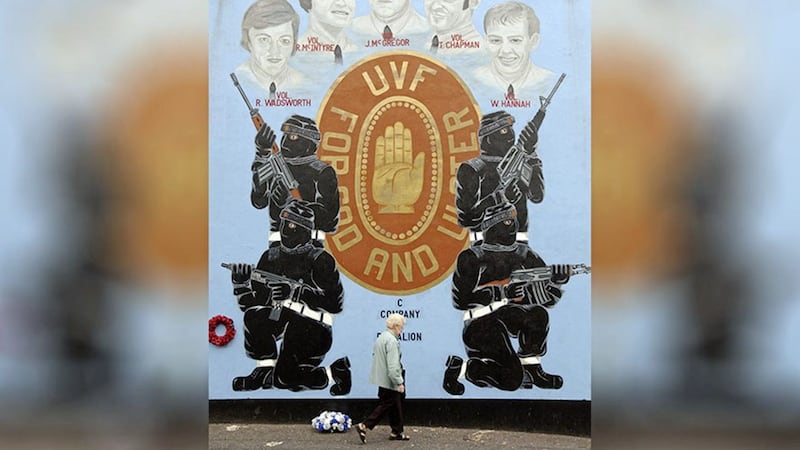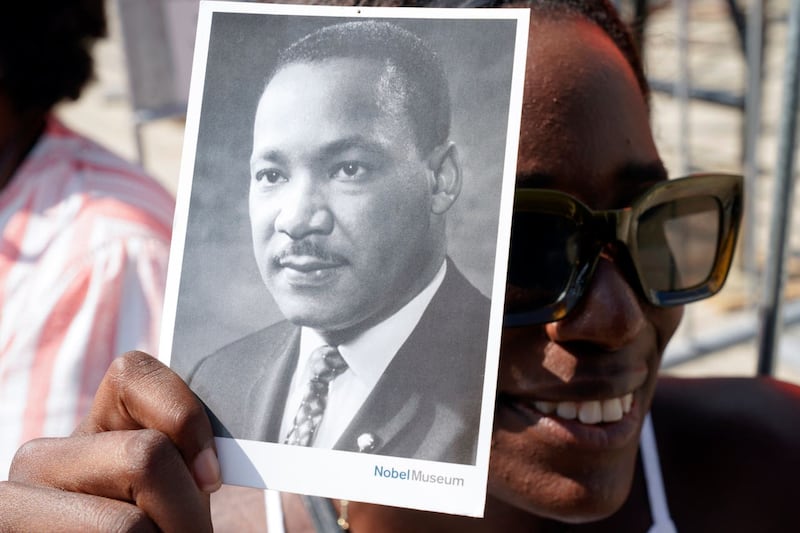CONTROVERSIAL legislation proposed by the British government will make it illegal to publish images linked to the republican movement and loyalism.
The proposed clampdown is contained in new the Counter-Terrorism and Border Security Bill which is currently making its way through Westminster.
The Irish News revealed yesterday how the planned legislation will result in the establishment of a mile-wide ‘stop and search border zone’.
Now it has emerged that the bill also proposes to outlaw clothing and images associated with paramilitary activity.
While other legislation, including the Terrorism Act, covers some of this ground, the proposed legislation will to go further.
There are currently 14 republican and loyalist organisations proscribed by the British government.
Several of the groups, including the main republican and loyalist organisations, are on long-term ceasefire.
The planned legislation says that: “A person commits an offence if the person publishes an image of - (a) an item of clothing, or (b) any other article, in such a way or in such circumstances as to arouse reasonable suspicion that the person is a member or supporter of a proscribed organisation”.
The proposed legislation says “an image is a reference to a still or moving image (produced by any means)”.
This means that anyone who published an image relating deemed to be in support of a paramilitary organisation would be breaking the law.
How far this will be enforced is unclear but it is thought it could be applied to flags and other images associated with both republican and loyalist groups.
Human rights groups have voiced concern about the proposed legislation.
Deputy director of the Committee on the Administration of Justice, Daniel Holder said: “The reality is, as it stands, if these laws were in fact applied to Northern Ireland, there would be huge community alienation, street violence would probably erupt and the cause of peace would be put back immeasurably.
“So if these counterterrorism measures are not only useless but counter-productive for Northern Ireland, how are they appropriate for the rest of the UK?”
The CAJ and nationalist politicians have also voiced concern about the prospect of a ‘stop and search border zone’.
If the bill becomes law any member of the public could be stopped within a mile of the border to establish if they are entering or leaving the north.
The proposed legislation states that an “examining officer” may question a person to determine if they are engaged in “hostile activity”.
SDLP MLA Carmel Hanna last night said the proposals would be a “grotesque assault on border life and on the (Good Friday) Agreement of which the UK Government is a co-guarantor”.
“The UK government appear to neither care nor understand the anxiety they are causing here,” she said.
"At this point in the Brexit negotiations there is very little we could put past this government who seem prepared to sign up to almost anything in the name of Brexit, and oblivious to the tension these proposals create.”
Sinn Féin deputy president Michelle O’Neill accused the British government of “duplicity.”
“The use of stop and search powers is already a cause of massive concern in nationalist areas and if powers as wide-ranging as these were introduced, it would be disastrous,” she said.
“It runs counter to human rights provisions. It runs counter to the Good Friday Agreement and the principles of the European Common Travel Area.
"I will be taking this up directly with both governments because it is clear that, through this legislation, London is preparing for the imposition of a hard border in Ireland.”








